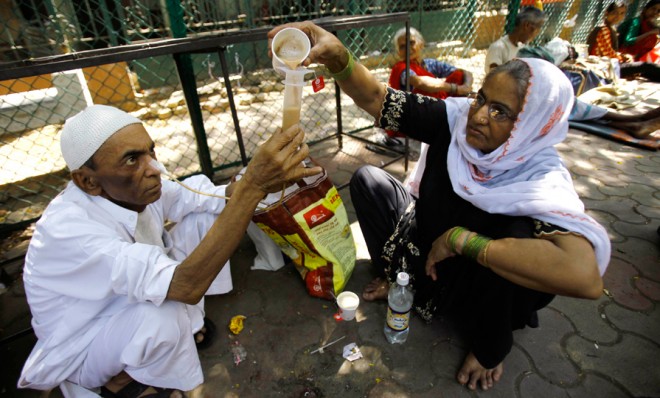Why India's rejection of a cancer-drug patent is a huge blow to Big Pharma
The country's Supreme Court rejects Novartis' patent application for Gleevec, an FDA-approved cure for certain forms of leukemia

A free daily email with the biggest news stories of the day – and the best features from TheWeek.com
You are now subscribed
Your newsletter sign-up was successful
Few would dispute the notion that major pharmaceutical companies like Johnson & Johnson and Pfizer are all-powerful, which is why it was huge news Monday that the Supreme Court of India rejected a patent application from Novartis — a Swiss multinational Pharma company — for a major cancer drug. The ruling will allow the country's poor to continue taking cheaper, generic versions of the medication without fear of reprieve.
According to The New York Times, the ruling allows India's generic drug manufacturers to continue making and distributing "copycat versions" of the drug Gleevec, a Food and Drug and Administration-approved medicine that can cure certain forms of leukemia. In this case, the Supreme Court ruled that "the patent that Novartis sought did not represent a true invention."
The ruling is something of a historic anomaly. Passed under international pressure, India's 2005 patent law for the first time allowed for patents on medicines, but only for drugs discovered after 1995. In 1993, Novartis patented a version of Gleevec that it later abandoned in development, but the Indian judges ruled that the early and later versions were not different enough for the later one to merit a separate patent. [New York Times]
More than 16,000 patients in India are using generic versions of Gleevec. Monday's intellectual property ruling will help ensure their continued access — at least for the time being — to these medicines, which they otherwise wouldn't be able to afford. Gleevec, for example, can cost up to $70,000 for a year's worth of treatment. A generic version? Just $2,500. Healthcare analyst Deepak Malik tells Reuters, "multinational companies will have to find new ways of doing business in India."
The Week
Escape your echo chamber. Get the facts behind the news, plus analysis from multiple perspectives.

Sign up for The Week's Free Newsletters
From our morning news briefing to a weekly Good News Newsletter, get the best of The Week delivered directly to your inbox.
From our morning news briefing to a weekly Good News Newsletter, get the best of The Week delivered directly to your inbox.
And the companies will probably try to do so, with future drugs not yet on the market. India, the world's leading exporter of generic medicine, ships $10 billion worth of product every year, so the fight will likely flare up again. "We don't have to worry about the drugs we're currently using," Leena Menghaney, a patient advocate for Doctors Without Borders, tells The New York Times. "But the million-dollar question is what is going to happen for new drugs that have not yet come out." For now, though, cancer patients in India can at least celebrate this big win.
A free daily email with the biggest news stories of the day – and the best features from TheWeek.com
-
 How to Get to Heaven from Belfast: a ‘highly entertaining ride’
How to Get to Heaven from Belfast: a ‘highly entertaining ride’The Week Recommends Mystery-comedy from the creator of Derry Girls should be ‘your new binge-watch’
-
 The 8 best TV shows of the 1960s
The 8 best TV shows of the 1960sThe standout shows of this decade take viewers from outer space to the Wild West
-
 Microdramas are booming
Microdramas are boomingUnder the radar Scroll to watch a whole movie